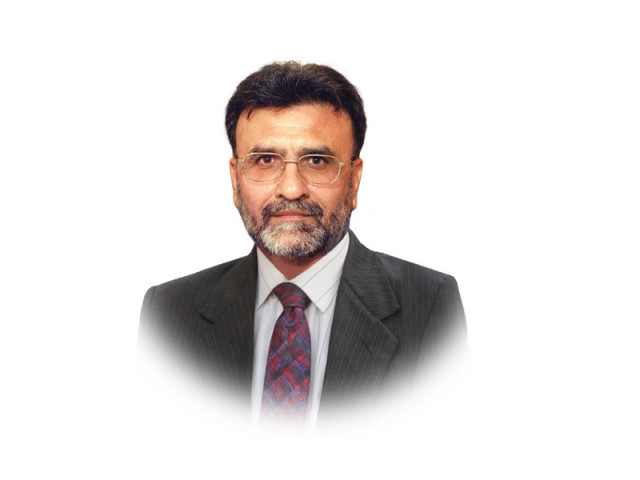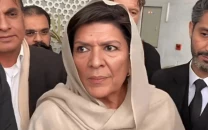An admission with no apparent shame or guilt
There are swaths of land that remain beyond the government control.

Chaudhry Nisar Ali Khan is made of an intriguing material. Since surfacing on our political scene in the mid-1980s, he gradually developed the reputation of a cool operator. Most observers considered him a firefighter who built bridges to the deep state for the comfort of Nawaz Sharif. By taking over in October 1999, General Pervez Musharraf demolished Nisar’s image of a bridge builder. He turned into a literal recluse and made deliberate efforts to lie low.
After becoming the prime minister for a third time, Nawaz Sharif made him the interior minister. We expected him to focus on the gigantic task of restoring order in Pakistan by imagining and executing out of the box but decisive policies. You should also speak less if placed in his position. He, however, has started talking a lot and mostly unnecessarily.
The opposition legislators had indeed tried to score points by feigning concern for the earthquake victims of Balochistan with their wanton conduct during the national assembly sitting of Wednesday. The interior minister should have let bygones be bygones. But he did everything to provoke the opposition by complaining to the Speaker that the opposition legislators staged a ‘Tamasha’ in the house the other day.
As if that were not enough, he went on to admit with no apparent shame or guilt that some helicopters flying with relief goods to areas hit by the earthquake were “fired at with rockets.” That forced the government to switch to deliver relief good through aerial drops made from C-130s. Instead of honestly admitting that insurgents have taken over vast swaths of territory in Balochistan, he kept describing those areas as “politically disturbed.”
The opposition appeared equally ridiculous while reacting to his speech. Syed Khurshid Shah felt very annoyed over the use of “Tamasha” for the “sincere and serious efforts made by the opposition to help the government in reaching out to calamity-hit areas of Balochistan.”
Makhdoom Shah Mehmood Qureshi briefly touched the government’s handicap in reaching out to “politically disturbed areas.” But he focused more on spinning the story as if the government faced difficulties in reaching out to quake victims, because the Chief Minister had gone to London and sufficient number of persons were not made ministers in the provincial government. As an experienced politician who had been in and out of various governments, Shah Mehmood Qureshi knows it well that even if Chief Minister Dr Malik were around with a truckload of provincial ministers, reaching out to ‘politically disturbed areas’ would not be possible for any of them.
It is time to admit frankly that precisely due to his being a hard-core ‘nationalist’ of yore, Dr Malik is viewed as a ‘renegade’ by activists controlling ‘the disturbed areas’ in Balochistan. Sufficient and competent ministers are not available to the provincial government, essentially due to internal tensions within the ruling alliance.
The PML-N had emerged as the single largest party in the Balochistan Assembly after the elections of May 2013. The turnout of Baloch voters in these elections was dismal and almost each person who won a provincial assembly seat on the PML-N ticket belonged to the category of ‘Sirdars’ that a crafty administrator of the British Raj, Robert F Sandeman, had spotted and groomed way back in the 1870s. Instead of facilitating the smooth progress of the Baloch society from the ‘tribal’ to ‘feudal’ under the tutelage of the Khan of Kalat, this officer pursued the policies of ‘divide and rule’ with vengeance. He acknowledged and strengthened the ‘autonomy of Sirdars’ and ensured that they enjoyed the ruthless control over their tribes in the name of protecting their ‘ancient rights and customs.’
The post-independence state of Pakistan could not get out of the mindset by the ‘Sandeman system’ and finally gave us the alienation that we see prevailing in “politically disturbed areas” of Balochistan these days. No one cares in Rawalpindi and Islamabad, though. Only the calamities like the earthquake of Tuesday briefly bring the uncomfortable truths out in the open. Talking heads wail over them on our TV screens for some days and then we forget.
Published in The Express Tribune, September 27th, 2013.



















COMMENTS
Comments are moderated and generally will be posted if they are on-topic and not abusive.
For more information, please see our Comments FAQ